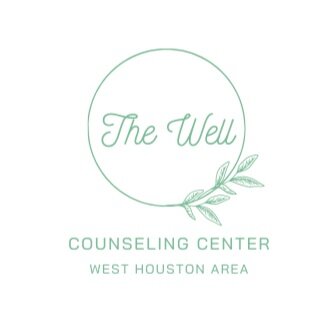First Time in Therapy?
Here's How to Prepare for a Successful Start
Taking the step to begin therapy is a powerful move towards improving your mental health and well-being. At The Well Counseling Katy, we understand that the thought of your first therapy session can bring a mix of emotions—excitement, curiosity, and perhaps a bit of nervousness. To help you feel more at ease, we’ve put together a guide on how to prepare for your first therapy session.
1. Set Realistic Expectations
Understand the Purpose: Your first therapy session is primarily an introduction. It’s an opportunity for you and your therapist to get to know each other, discuss your goals, and lay the groundwork for your therapeutic journey.
Be Open-Minded: Therapy is a process. It may take a few sessions to build trust and start seeing progress. Be patient with yourself and your therapist.
2. Gather Important Information
Personal History: Reflect on your past experiences, significant life events, and any previous therapy you’ve had. This information can provide valuable context for your therapist.
Current Concerns: Think about what’s bringing you to therapy now. What are the main issues or challenges you’re facing? Being clear about your reasons for seeking therapy can help guide the conversation.
Medical History: Note any relevant medical conditions, medications, or treatments you’ve received. Your physical health can impact your mental health, so it’s important for your therapist to have a complete picture.
3. Prepare Emotionally and Mentally
Acknowledge Your Feelings: It’s normal to feel anxious or uncertain before your first session. Acknowledge these feelings and remind yourself that seeking help is a positive and proactive step.
Be Ready to Share: Therapy is a safe space for you to express your thoughts and feelings. While it’s okay to take your time, being open and honest will help your therapist understand and support you better.
4. Practical Preparations
Choose a Comfortable Outfit: Wear something that makes you feel comfortable and at ease. The focus should be on your mental and emotional comfort.
Plan Your Day: Try to avoid scheduling stressful activities before or after your session. Give yourself some time to reflect and process after the session.
Logistics: Ensure you know the location of your therapist’s office, or if it’s an online session, make sure you have a quiet, private space and a stable internet connection.
5. Bring a Notebook or Journal
Take Notes: Jot down any questions or topics you want to discuss during your session. You can also use it to note any insights or important points that come up during the session.
Track Your Progress: Over time, you can use your journal to track your progress and reflect on your journey.
6. Questions to Consider
What Are Your Goals for Therapy? Think about what you hope to achieve through therapy. Whether it’s managing anxiety, improving relationships, or finding better coping strategies, having clear goals can guide your sessions.
What Are Your Concerns? If you have any worries about therapy, such as confidentiality, the therapist’s approach, or the therapy process itself, write them down. Don’t hesitate to bring these up during your session.
7. Self-Care Before and After
Relaxation Techniques: Practice some relaxation techniques like deep breathing, meditation, or a short walk to calm your mind before the session.
Reflect and Recharge: After the session, give yourself some time to reflect on the experience. Engage in an activity that relaxes and recharges you.
Conclusion
Preparing for your first therapy session can help alleviate some of the anxiety and ensure you make the most of the experience. At The Well Counseling Katy, we’re committed to providing a safe, supportive environment where you can explore your thoughts and feelings, develop new coping strategies, and work towards your personal goals.
Remember, the first step is often the hardest, but it’s also the most courageous. We look forward to supporting you on your journey to mental wellness. If you have any questions or need further assistance, don’t hesitate to contact us. Your path to healing and growth starts here.

